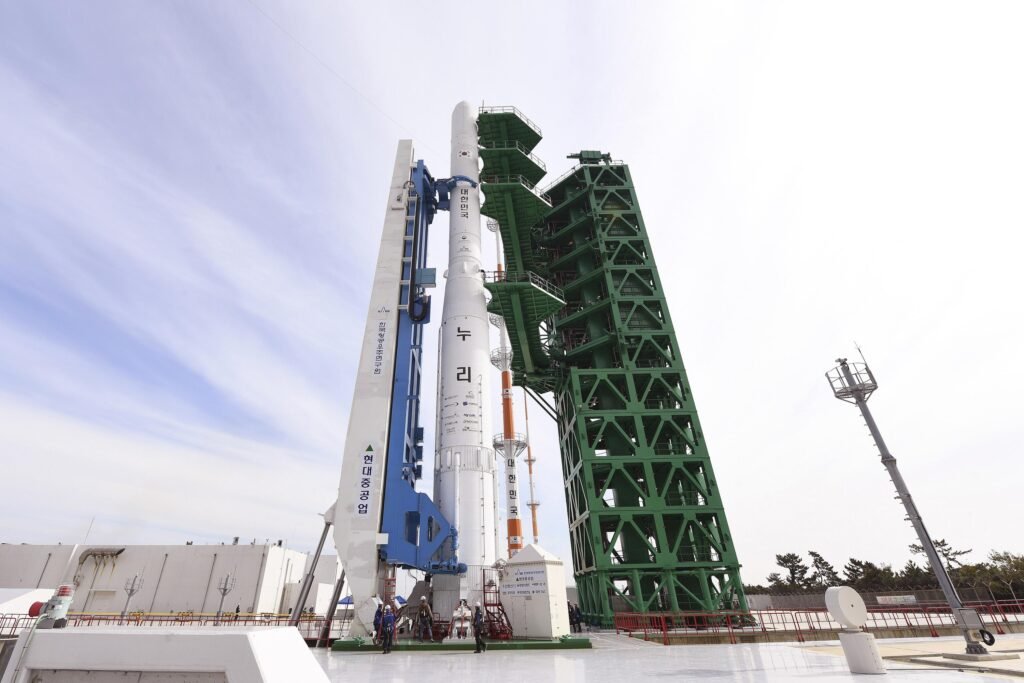
As the investment fever in the initial public offering (IPO) market subsided in the second half of the year, there were simultaneous analyses in the market that the market was in the process of normalizing overheating and that the market had entered a recession. It is a planned process that the overheating phase, which was profitable even with so-called ‘no-questions-asked investment’, will calm down, but even taking this into account, there are warnings that the cooling rate is fast and that one must be cautious about investment.
According to the Korea Exchange on the 16th, among the six companies newly listed last month, the stock prices of Innospace (-20.44%) and Excel Therapeutics (-16.70%) fell significantly compared to the public offering price based on the closing price on the first day of listing. Oracle, which was listed on this day, was only at the same level as the public offering price based on the closing price. Bankware Global’s stock price fell 6.73% on this day compared to the previous trading day, continuing its stock price decline for four consecutive trading days after listing. Bankware Global (-1.56%), which was listed on the 12th, also fell below the offering price.
In particular, in the case of Bankware Global, it is accepted as a harbinger of market cooling in that the frozen investment sentiment of institutional investors took effect from the demand forecasting stage.
Previously, Bankware Global recorded a competition rate of 155 to 1 in demand forecasting for institutional investors conducted from the 23rd to the 29th of last month. The public offering price was decided at 16,000 won, at the bottom of the desired range (16,000 to 19,000 won). Among companies that promoted an IPO this year, Bankware Global is the first to set the public offering price at the bottom of the rare range.
Bankware Global said, “Considering the recent continued controversy over the excessively inflated public offering prices of listed companies, we have finalized the public offering price in a market-friendly manner.”
The market cited the overvaluation of public offering stocks as the reason for the market’s rapid cooling as institutional investors competitively set high prices during the demand forecasting stage in the first half of the year.
The reason why institutional investors were able to write down a price that exceeded the upper end of the desired public offering range in demand forecasting was that even if they wrote down a high price, the stock price soared after listing and they were able to make sufficient profits. However, it is analyzed that in the end, overvalued public offering stocks plummeted after listing, leading to a cooling of the market.
The CEO of a public stock fund management company said,
“Most of the institutional investors who participated in demand forecasting in the first half of the year used competitively high prices, resulting in the public offering price exceeding the upper end of the company’s desired range. However, there were companies whose stock prices fell even on the day of listing and were overvalued.” “The cycle that supports it has been broken,” he said.
Recently, an atmosphere of concern about overvalued public offering stocks has been detected in general subscriptions in which individual investors participate.
Next Biomedical, an innovative treatment development company that conducted general subscription on the 7th and 8th, recorded a competition rate of 65.83 to 1 and a subscription margin of 238.5 billion won, both the lowest among listed companies this year.
Then, K3I, an extended reality (XR) solution company that held general subscriptions on the 8th and 9th, broke the lowest record in one day with a competition rate of 34 to 1 and a subscription margin of 93 billion won.
The fact that the stock market that supports the public offering market has recently shown great volatility is also pointed out as a factor dampening investment sentiment. On the 5th, KOSPI fell 8.77% compared to the previous trading day, recording the largest decline in about 16 years since 2008. Then, on the 6th, it rebounded 3.30% in one day, showing that market volatility has become greater than ever.
An executive in the IPO division of a securities company said, “The public stock market is cooling down as quickly as it is overheating, so it seems like there is no middle ground. Even the stock market has become more volatile, increasing the possibility of dampening investment sentiment.”
In the market, it is pointed out that the selection of pros and cons is intensifying when it comes to public offering stocks, so investors should be cautious when investing.
There is also an analysis that the success of large-cap stocks such as K Bank, which is preparing for listing in the second half of the year, will determine the future market atmosphere. K Bank is estimated to have a corporate value of more than 5 trillion won and is considered a candidate for the largest IPO in this year’s IPO market.
Park Jong-seon, a researcher at Eugene Investment & Securities, said, “The phenomenon of picking the right ones for public offerings is intensifying, and after the widening of stock price fluctuations on the first day of listing, the high fluctuations have entered a stabilization stage.” He added, “With Shift Up’s successful listing in July, additional large-scale IPOs of companies have been launched.” “It is positive that the challenge continues,” he said.